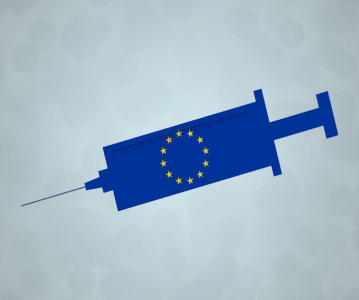An increased risk of a hard or ‘no deal Brexit?

A ‘no deal’ Brexit will change and burden how all industries that move materials and goods across borders, including the pharmaceutical and medical device sectors, do business.
Pharmaceutical companies still do not know how they will be affected by Brexit after Prime Minister Theresa May decided to postpone a vote on her deal with the European Union (EU).
The delay was announced just a day before Parliament was due to decide whether to accept the draft framework agreement negotiated with the EU over the past 2 years. The deal as it currently stands faces strong opposition, and most observers had predicted it would not pass.
The vote, now set to take place in mid-January, would provide some clarity on how the development, manufacture and sale of pharmaceuticals and medical devices would be regulated after Brexit.
Whether the agreement can be renegotiated remains to be seen so at present there is an increased risk of a hard or ‘no deal Brexit where the UK potentially withdraws from the EU without a trading agreement.
A ‘no deal’ Brexit, if it happens – the European Court of Justice (ECJ) confirmed the UK can halt the Article 50 process unilaterally before 29 March – is predicted by many experts to risk huge social and economic impact.
It will also change and burden how all industries that move materials and goods across borders, including the pharmaceutical and medical device sectors, do business.
Supply chain disruption
Medicine supply chains between the UK and EU will be affected according to the Association for British Pharmaceutical Industries’ (ABPI) chief exective, Mike Thompson.
Writing in response to a government update he said: “Pharmaceutical companies continue to do everything in their power to make sure that patients get access to medicines whatever the Brexit scenario. This includes duplicating processes, changing supply routes and stockpiling medicines in line with the Government’s guidance. However, we have been clear that there are things which are out of our control.
“This update on potential border delays for 6 months in a ‘no deal’ scenario is stark. Stockpiling more medicines is not the solution to this problem,” Thompson continued, adding, “We welcome the Secretary of State’s intention to prioritise the flow of medicines and vaccines. But with just 16 weeks until the UK leaves the EU, we need the detail.”
He urged the Government to take immediate action to open up alternative supply routes between the UK and Europe and tell companies so they can make plans.
Third country controls
The UK BioIndustry Association raised similar concerns, noting the government has provided little information on actions it is planning beyond ensuring there is sufficient roll-on, roll-off freight capacity and that medicines will be prioritised on alternative routes.
It wrote: “A ‘no deal’ Brexit would mean the biggest dis-integration of the complex regulated medicines market across Europe in terms of regulation, cross border movement of goods, comparative pricing and intellectual property. The organisation also pointed out that many key parts of the UK’s future trading relationship will be decided in Brussels.
“The European Commission has made it clear that, in the event of a ‘no deal’ scenario, it will impose full third country controls on people and goods entering the EU from the UK. Whether this happens or not is in their hands, not ours,” it said.
Regulatory uncertainty
Regulations covering the development, manufacture and assessment of pharmaceutical products will also change under a ‘no-deal’ Brexit. It is not clear which EU rules will be written into UK law. For example, new on-pack safety feature regulations are likely to apply, but parts of the EU Clinical Trial Regulation (CTR) may not, according to the European Commission
Neither is it certain how the Medicines and Healthcare products Regulatory Agency (MHRA) will interact with the European Medicines Agency (EMA) with respect to, among other activities, manufacturing facility inspections.
Previously, the UK regulator has been very visible in Europe, ensuring that EU regulations have been pragmatic, favourable to innovation and forward-looking while protecting patient interests.
Other key questions remain regarding pharmacovigilance activities – which must take place in an EU member state or EEA territory – as well as batch release and certification.
RAPS is closely monitoring this period of uncertainty and transition and is committed to informing regulatory professionals with the latest news and insights as they develop.
Related News
-
News Patients vs Pharma – who will the Inflation Reduction Act affect the most?
The Inflation Reduction Act brought in by the Biden administration in 2022 aims to give better and more equitable access to healthcare in the USA. However, pharma companies are now concerned about the other potential costs of such legislation. -
News CPHI Podcast Series: What does the changing US Pharma market mean for industry and patients alike?
In this week's episode of the CPHI Podcast Series Lucy Chard, Digital Editor for CPHI Online is joined by James Manser to discuss the political and market changes in the US pharma field. -
News CPHI Barcelona Annual Report illuminates industry trends for 2024
The CPHI Annual Survey comes into it’s 7th year to report on the predicted trends for 2024. Over 250 pharma executives were asked 35 questions, with their answers informing the industry landscape for the next year, spanning all major pharma marke... -
News Which 10 drugs are open to price negotiation with Medicare in the USA?
The Centres for Medicare & Medicaid Services, under the Biden administration in the USA, has released a list of the 10 drugs that will be open to price negotiations as part of the new legislation under the Inflation Reduction Act (IRA). -
News EU Medical Devices Regulation causes unintended disappearances of medical devices for children, doctors state
Doctor groups and associations have appealed to the EU to correct the EU Medical Devices Regulation law that may cause unintended shortages of essential drug and medical devices for children and rare disease patients. -
News 10 Major Drug Approvals So Far in 2023
Last year, 37 novel drugs were approved by the FDA, this was a high number for such a category, and covered many fields including oncology, demonstrating how promising further research is, and how it is only continuing to build. To date, there are alre... -
News Detecting Alzheimer's disease with a simple lateral flow test
A novel rapid diagnostic test for early-stage Alzheimer's disease has been developed using a biomarker binder from Aptamer Group along with technology from Neuro-Bio, the neurodegenerative disease experts. -
News CPHI Podcast Series: outsourcing and manufacturing trends
Listen to the CPHI Podcast Series this June to hear Gil Roth of the PBOA speak with Digital Editor Lucy Chard about the biggest trends and topics to watch in pharma outsourcing and manufacturing at the minute.
Position your company at the heart of the global Pharma industry with a CPHI Online membership
-
Your products and solutions visible to thousands of visitors within the largest Pharma marketplace
-
Generate high-quality, engaged leads for your business, all year round
-
Promote your business as the industry’s thought-leader by hosting your reports, brochures and videos within your profile
-
Your company’s profile boosted at all participating CPHI events
-
An easy-to-use platform with a detailed dashboard showing your leads and performance







